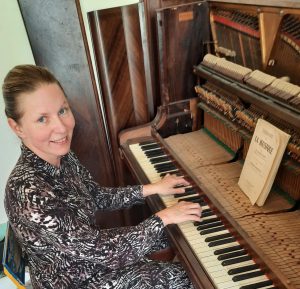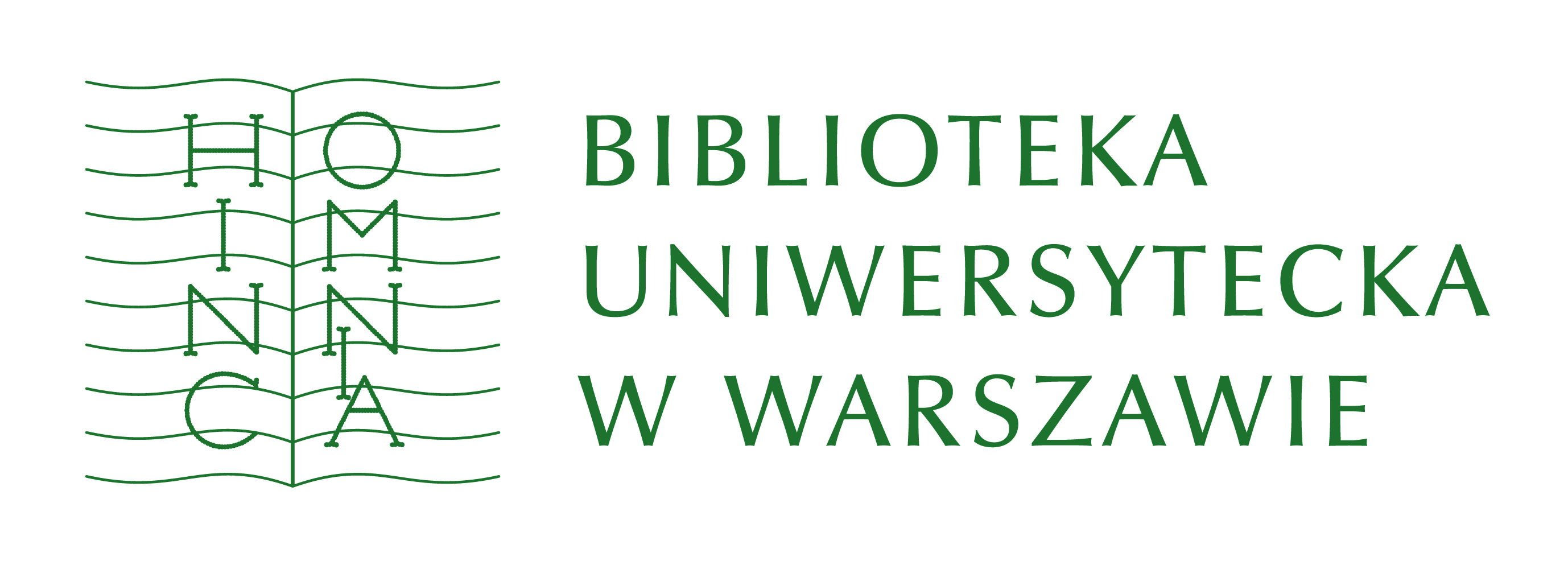[en:]dr hab. Katarzyna Naliwajek
 She has focused her research on the history of music in occupied Poland from 1939 to 1945, including such main topics as the Nazi musical propaganda, the role of music in concentration camps, detention sites and death camps, forgotten musicians and compositions, persecuted musicians and victims of the Holocaust, as well as music-related losses due to Nazi plunder and destruction. She also studies such topics as the interrelationship between music and politics, Polish 20th century and contemporary music, opera, music aesthetics, theory and analysis, as well as the history of theory. Her recent book, Sounds of Apocalypse. Music in Poland under German Occupation (Berlin: Peter Lang, 2022), was nominated for the Polish Academy of Sciences Award and has received favorable reviews. Her latest research adopts a comparative approach to musical propaganda (See: Weaponized Songs: Pro-Putin and Other Totalitarian Musical Propaganda, “Musicology Today”, 21: 1, December 2024).
She has focused her research on the history of music in occupied Poland from 1939 to 1945, including such main topics as the Nazi musical propaganda, the role of music in concentration camps, detention sites and death camps, forgotten musicians and compositions, persecuted musicians and victims of the Holocaust, as well as music-related losses due to Nazi plunder and destruction. She also studies such topics as the interrelationship between music and politics, Polish 20th century and contemporary music, opera, music aesthetics, theory and analysis, as well as the history of theory. Her recent book, Sounds of Apocalypse. Music in Poland under German Occupation (Berlin: Peter Lang, 2022), was nominated for the Polish Academy of Sciences Award and has received favorable reviews. Her latest research adopts a comparative approach to musical propaganda (See: Weaponized Songs: Pro-Putin and Other Totalitarian Musical Propaganda, “Musicology Today”, 21: 1, December 2024).
She has recorded interviews with World War II survivors and conducted her research at different archives in Poland as well as at the US Holocaust Memorial Museum and the Wiener Library for the Study of the Holocaust & Genocide. At the request of Helena Dunicz-Niwińska, violinist in the Birkenau women’s orchestra Naliwajek directed the reconstruction of In mir klingt ein Lied by Alma Rosé (it was published on CD titled Chopin in Birkenau).
Her publications and research were recognized with several awards. For the exhibition Music in Occupied Poland. 1939-1945, presented in Germany and Austria (Hamburg, Kiel, Berlin, Lüneburg, Görlitz, Peenemünde, Bregenz), as well as in Poland, she was awarded the prestigious Hosenfeld/Szpilman Gedenkpreis by the Leuphana Universität Lüneburg (2011). The book Warszawa 1939–1945. Okupacyjne losy muzyków (2014), which she co-authored with Elżbieta Markowska, won the Literary Award of the City of Warsaw as well as the KLIO Award from the Association of Publishers of History Books in the Varsaviana category (2015). In 2015 she published the second volume of the book – with Andrzej Spóz, the director of the Warsaw Musical Society library. Her doctoral thesis “Konstanty Regamey’s oeuvre in the light of his aesthetic concepts” (written under the supervision of Professor Maciej Gołąb) won the Professor Hieronim Feicht Prize awarded by the Musicological Section of the Polish Composers Union (2009). In 2024 she was elected member of the jury of this prize. In 2016 she received the Rector’s Award for her contribution to the development and prestige of the University of Warsaw and in 2023 the Rector’s Award for scientific achievements.
Since 2011 she has served as Member of the Repertoire Committee of the Warsaw Autumn International Festival of Contemporary Music. She is also a member of the Polish Composers Union and serves on the board of the Witold Lutosławski Society. As music curator at the Nowy Teatr in Warsaw she had created concerts and installations. She has also curated the series of public presentations of operas directed by Krzysztof Warlikowski. Occasionally working as a dramaturge, translator, and editor, she prepared the reconstruction (as well as the new translation and casting) of The Madwoman of Chaillot by Jean Giraudoux with theatre music by Witold Lutosławski (2018, at the Nowy Teatr, directed by Krzysztof Garbaczewski). She co-edited two volumes of writings on new music authored by the eminent Polish critic and musicologist Andrzej Chłopecki. In 2022 she edited and wrote the preface to the Polish translation of Antoine Reicha’s Cours de composition musicale for The Fryderyk Chopin National Institute.
Her commitment to music education is reflected in her concept of the website www.muzykotekaszkolna.pl, destined at primary and secondary schools students and teachers, which she developed, produced and supervised at the Polish National Audiovisual Institute (2011-2012).
In addition to translations and numerous publications, among others for concert programs and booklets for labels such as Chandos, Dux, Channel Classics, Muso, Warsaw Philharmonic and other institutions, she has presented the results of her research on Polish music at the Universität Salzburg (2006), Jagiellonian University (2007; 2012), University of London (2008), University of Bristol (2006; 2010), University of Manchester (2012, 2015), National Museum in Poznań, Polin Museum of the History of Polish Jews, Georg-August-Universität Göttingen, Université Libre de Bruxelles, Council of Europe in Strasbourg, University of Oxford (2013), United States Holocaust Memorial Museum in Washington (2014), as well as Max-Planck-Institut für Bildungsforschung Berlin (2011), University of Arizona and Université Libre de Bruxelles (2013), Wiener Library for the Study of Holocaust and Genocide in London (2015), and as keynote speaker at the University of London, Royal Holloway, at the Royal Northern College of Music in Manchester (2016), at the invitation of the Mémoire d’Auschwitz – Fondation Auschwitz in Brussels and of the Historical Archive at the University of Athens (2017), at the Panteion University in Athens (2019), at the Klara Festival in Brussels, at the Centre d’histoire de Sciences Po in Paris (2020), at the Institut für Musikwissenschaft und Medienwissenchaft Humboldt-Universität zu Berlin (2021, online), at the Beethoven-Haus in Bonn (2022) and at the German Historical Institute in Warsaw (2023) and Paris (2024).
ORCID iD://orcid.org/0000-0003-2450-9357
Google Scholar: https://scholar.google.com/citations?user=9e_PTyUAAAAJ&hl=pl&oi=ao
https://www.researchgate.net/profile/Katarzyna-Naliwajek-2
https://uw.academia.edu/Katarzyna_Naliwajek




